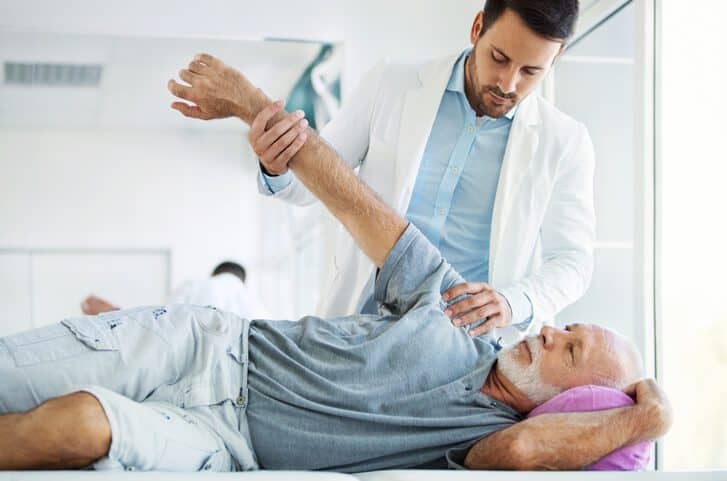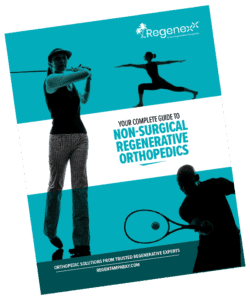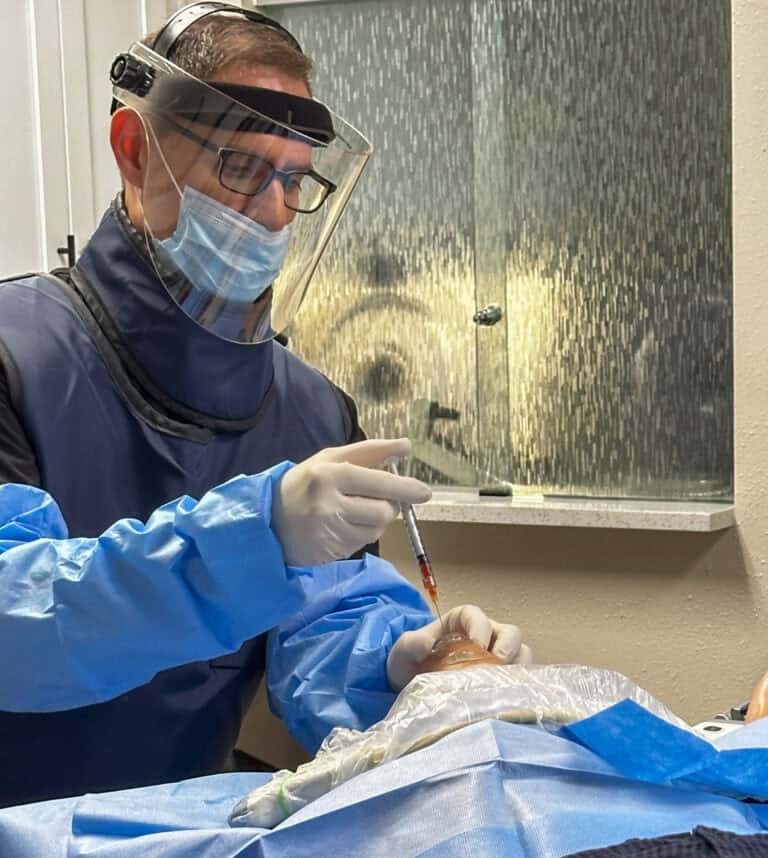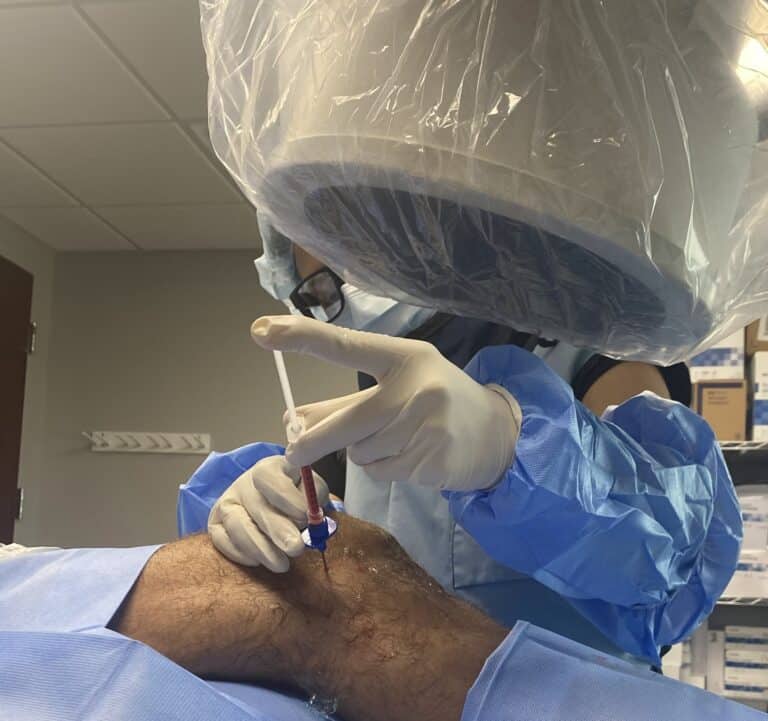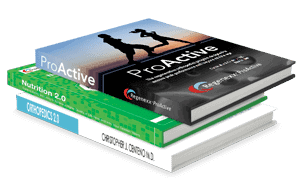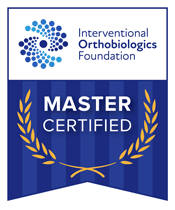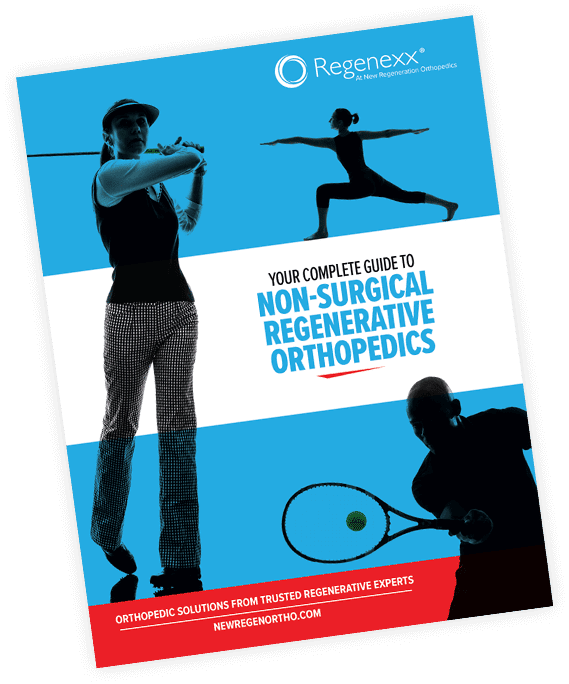If your shoulder regularly pops when you move it, but you don’t feel any pain, it’s nothing to be concerned about, right? The short answer is “it depends.” No pain doesn’t necessarily mean no problem. While it could be harmless, it also might be a foreshadowing of a problem that can lead to labrum injury or arthritis in the shoulder.
To help you discern whether your shoulder popping needs medical attention or not, read on.
How the Shoulder Works
As you may know, the shoulder is a ball-and-socket joint. The head of the long upper arm bone (the humerus) is the ball that fits into the socket, or shallow depression, of the scapula. Several capsular ligaments give the shoulder its stability, help control its movements and keep it in place.
Small injuries to the shoulder can stretch the ligaments, making them loose. Loose ligaments cause the shoulder to lose its precise mobility and can mean it moves too far forward or backward.
Termed “instability,” one of its symptoms is shoulder popping without pain. Injuries to the rotator cuff tendons can also cause instability in a similar fashion. The rotator cuff tendons act in part to improve the stability especially during various motions of the shoulder.
You might suffer from instability because of a shoulder dislocation or joint degeneration due to aging or wear and tear. If your ligaments are injured, they can cause harm to the whole shoulder.
If it’s not tended to, other shoulder problems – shoulder labral tears, rotator cuff injuries and early shoulder arthritis, can occur and pain may eventually ensue.
How to Know If Your Shoulder Popping Is Harmless
Your family practitioner and your orthopedic surgeon may not be adept at diagnosing subtle shoulder instability. This is because surgeons are trained to diagnose unstable shoulders that require surgical fixation.
If a shoulder has less instability than warrants surgical pinning then it doesn’t require their skillset. Family practitioners and surgeons were trained to ignore painless shoulder popping, even though there is evidence that unstable joints can bring on arthritis more quickly.
You are probably the best person to identify what type of shoulder popping you’re experiencing. Just reference your medical history for clues.
If you’ve had a shoulder “separation” before, it’s been dislocated or popped out of its socket, you might have reason to believe your issue is a more serious one. Other past damage could include a shoulder injury – whether suffered in a car accident or while playing a sport.
If you’re in the clear for these types of traumas, your shoulder popping may be of no great concern.
How to Treat Your Shoulder Popping
Did you self-diagnose your painless shoulder popping as one that is a symptom of loose ligaments? Don’t rely on your doctor to prescribe any treatment before you’ve mentioned discomfort, even though your shoulder could become injured.
In fact, once you do begin to feel pain, it might have already progressed to arthritis, a labral tear, or another serious problem. If your doctor does determine that you are suffering from significant shoulder instability, surgery is often the prescribed remedy.
Unfortunately, surgery is, by its nature, invasive. It also requires a very long rest and recovery period. An alternative procedure is image-guided, precise injections of your own concentrated platelets into the ligaments, tendons, or structures in question.
Being proactive could prevent the onset of arthritis and other issues. If this is something you currently experience, contact us today to find out if you’re a ca0ndidate for a Regenexx procedure.
